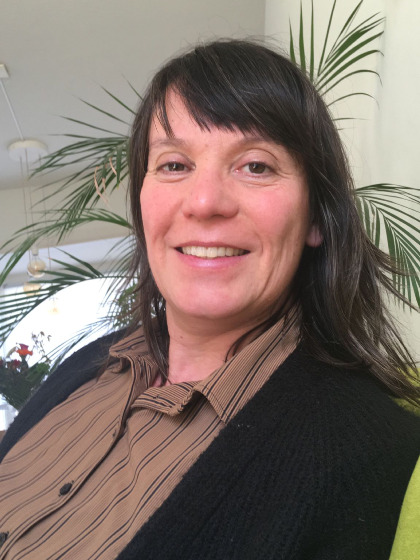prof. dr. L. (Lidewijde) de Jong

MARE: Mortuary Archaeology in the Roman East In the Roman provinces of the Near East some people never passed away completely. Memories of the deceased were prolonged after death through portraits and epitaphs, monumental stone coffins, and roadside tombs. We know that these forms of displaying the dead had arrived through the cultural networks of the Roman Empire, but so far, we have failed to grasp how they were embedded in mortuary rituals. This project will incorporate the mortuary context in the debate on culture change, and investigate how the dead were mobilized in ongoing negotiations between the global (empire-wide) and the local.
Thus far, two barriers have stood in the way of this type of research: the inaccessibility of legacy datasets, and disciplinary divides in scholarship on epitaphs, human bones, ornamentation, and material remains. Recently, digitization efforts have made large datasets of ancient inscriptions and portraits available, and a pilot database was developed at the University of Groningen that brings different data categories in conversation with each other. Capitalizing on these initiatives, this project integrates legacy datasets of archaeologists, historians and art historians. Using an object-active approach we interrogate the transformation of relationships between people, tombs, epitaphs, coffins, and visual imagery in the cemeteries of Roman Lebanon, Syria (Palmyra), and Turkey (Pisidia).
Over the next five years, a team of two post-docs, two Phds, research assistants, and the CIT department will work with the PI to build a digital infrastructure to enhance legacy and orphaned datasets from coastal Lebanon, Palmyra, and Pisidia, as well as unlock inaccessible collections for wider audiences.
Digital Tombs: Towards an integrated study of funerary practices: digital database to store, analyze, and disseminate epigraphic, iconographic, geographic, and archaeological data concerning funerary practices of the Roman world. Collaboration with RIS and the Geodienst at the University of Groningen. Website (under construction): https://digitaltombs.org/
Funerary Life in Pisidia: collecting and analyzing funerary materials from the Hellenistic and Roman period collected during surveys or stored museums in Northwest Pisidia, as well as new data coming from the excavation of the Roman and Byzantine necropoleis at Seleukeia Sidera. Collaboration with the University of Isparta (SDU-Department of Archaeology: https://international.sdu.edu.tr/en/academic-department/archaeology
Burial and Commemoration in the Roman Province: this research project investigates the negotiation of local identity through funerary practices in a period of extending imperialism and globalization in the Near Eastern provinces of the Roman empire. It builds on my research on cemeteries in Roman Lebanon and Syria. A new project extends the investigation of the blossoming of local funerary styles to neighboring regions of Turkey and Jordan and includes osteological, textual, and art-historical sources.
North Mesopotamia after Alexander: comparative research on the imprint of several empires (Classical, Persian, and Early Islamic) on the urban and rural landscape and communities of North Mesopotamia. Collaboration with the Erbil Plain Archaeological Survey (Harvard University). Network: https://rug.academia.edu/TAMAM
Erbil Plain Archaeological Survey project: Since 2012, the Groningen Institute of Archaeology participates in the Erbil Plain Archaeological Survey (EPAS) in North Iraq (Kurdistan), directed by Prof. Jason Ur (Harvard University) in collaboration with the Directorate of Antiquities for the Kurdistan Regional Government, and the State Board of Antiquities and Heritage. The project combines a study of historical satellite and aerial photographs with on the ground survey and investigates the long-term impact of ancient empires on the rural landscape of North Iraq. The Groningen Institute of Archaeology concentrates on the post-Assyrian periods. Located in the Hellenistic heartland and, subsequently, in the zone of conflict between Romans and Parthians, investigation of the hinterland of Erbil provides new insights about the lives of local villagers between the 3rd c BC and the 3rd c AD.
Project website: http://scholar.harvard.edu/jasonur/pages/erbil
